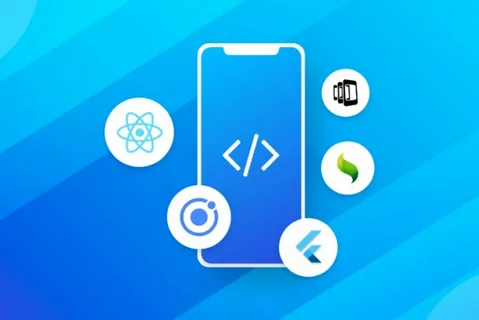In today’s fast-paced digital world, it’s more important than ever for apps to work well on a number of different devices. Cross-platform development tools have emerged as an answer. They let developers make apps that work on different operating systems without having to rewrite a lot of code. This blog discusses the pros and cons of cross platform development framework.
Understanding Cross-Platform Development
Cross-platform programming tools let writers write code only once and use it on many devices, like the web, iOS, Android, and Windows. When you use native programming, you keep different codebases for each device. Cross-platform tools help writers reach more people, get their products to market faster, and make sure users have the same experience on all platforms.
Benefits of Cross-Platform Development
- Cost-Effectiveness: Using a single version for multiple systems cuts down on the time and money needed to build software. This is especially helpful for new businesses and small companies that have limited resources.
- Faster Time-to-Market: With a uniform script, changes and new features can be sent to all devices at the same time. This speeds up delivery and keeps you ahead of the competition.
- Consistency: Cross-platform frameworks make sure that the look and feel of apps is the same on all devices. This makes the user experience better and helps people recognize the brand.
- Simplified Maintenance: Keeping track of one source makes it easier to fix bugs, make changes, and do upkeep. Any problems can be fixed on all devices at the same time.
Challenges of Cross-Platform Development
- Performance Issues: Cross-platform apps might not work as well as native apps, especially when it comes to apps that use a lot of images or resources.
- Limited Access to Native APIs: Some cross-platform frameworks might not be able to access all features and APIs unique to a device, which could limit their usefulness.
- User Interface Differences: It can be hard to get a local look and feel because each platform has its own design rules and user standards.
- Framework Limitations: If you depend on third-party frameworks, problems could occur if they aren’t updated often or stop working.
Popular Cross-Platform Frameworks
- React Native: Facebook made React Native, which lets developers use JavaScript and React to make mobile apps. It works almost like a native app and has a big community to help you out.
- Flutter: Google’s Flutter uses the Dart programming language and comes with many pre-made tools for making apps that look good. It’s known for being fast and having an easy-to-use interface.
- Xamarin: Microsoft owns Xamarin and makes cross-platform apps with C# and.NET. Because it works well with Microsoft tools and services, it’s a popular choice for business apps.
- Ionic: Many people choose Ionic to make mixed mobile apps that use web tools like HTML, CSS, and JavaScript. Its set of UI tools and components works best on mobile devices.
- Cordova/PhoneGap: Apache Cordova, sometimes called PhoneGap, lets developers use web tools to make apps that run on phones. It puts the web app inside a native wrapper, which allows users to use the device’s features.
Choosing the Right Framework
Selecting the appropriate cross-platform framework depends on several factors, including project requirements, developer expertise, performance needs, and each framework’s specific features. It’s essential to evaluate the pros and cons of each option to find the best fit for your project.
Conclusion
Cross-platform development frameworks are transforming the way applications are built and deployed, offering significant advantages in terms of cost, time, and consistency. Despite some challenges, the continuous improvement of these frameworks and the growing community support are making cross-platform development a viable and attractive option for many developers and businesses.
By leveraging the power of cross-platform frameworks, developers can create seamless, high-quality applications that reach a wider audience and provide a consistent user experience across all devices. Looking to use cross-platform frameworks to your sites. Then contact Arturion. They can provide you with the best development service in the world.










